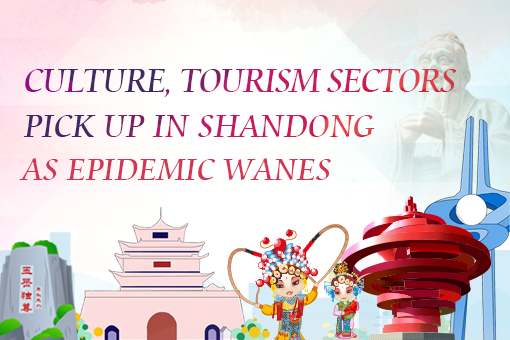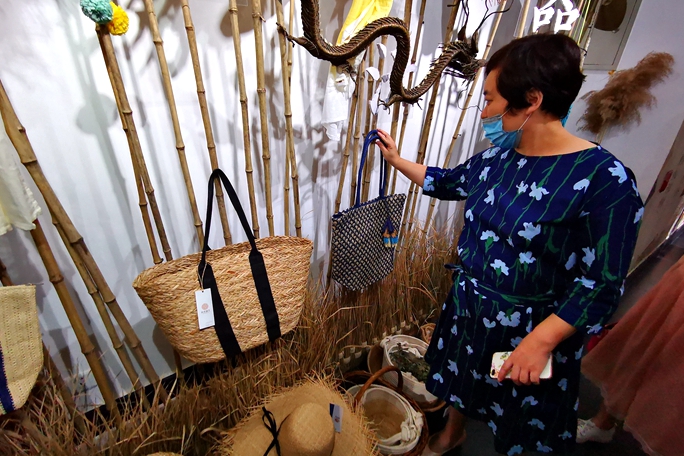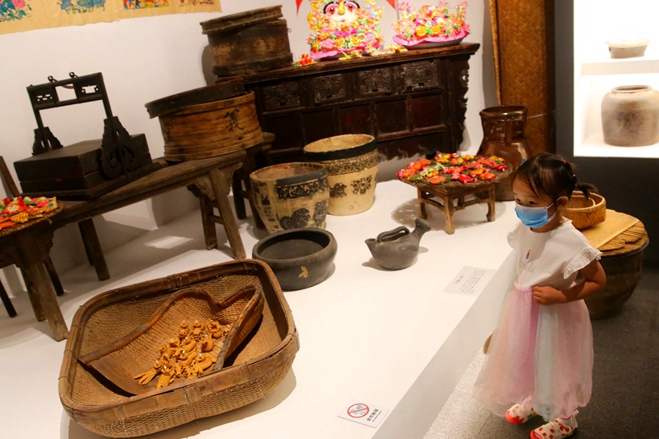Revolutionary history and culture push tourism drive
When the national opera Yimeng Mountain debuted in Jinan in February, many in the audience were moved to tears because of Shandong province's close connection to the story.
When the nighttime performance concluded they jumped to their feet and applauded the performers, reluctant to leave the Shandong Provincial Grand Theater.
Based on true stories that took place in Shandong's Yimeng Mountains during the War of Resistance Against Japanese Aggression (1931-45), the opera tells how the local villagers supported Communist troops by making shoes and clothes for them and taking care of their children. The spirit of Yimeng villagers and soldiers working together to pursue a common destiny is grandly on show.
Yimeng Mountain has since been staged over 50 times across China, including Beijing, and enjoyed by more than 50,000 theatergoers.
The opera - along with dance drama Ru Niang, which depicts a group of mothers taking care of soldiers' children - is part of the local government's efforts to tap Chinese history and culture and carry on its values for future generations.
Shandong is home to a rich revolutionary culture, with 2,449 registered revolutionary cultural heritage sites.
With the 70th anniversary of the founding of the People's Republic of China on Oct 1, the province has been spurred to integrate its revolutionary cultural resources into its tourism industry. "Revolutionary culture tourism has become a highlight of Shan-dong's tourism industry, and relevant destinations are popular among student tour groups," said Wang Chunsheng of the Shandong provincial Department of Culture and Tourism.
At Tianjia village, Yazi town, Weihai, there is a site commemorating the wartime care of children. In 1942, a child care base was founded where over 300 local mothers looked after 1,223 children of soldiers who had to fight.
A memorial hall has been built to tell visitors their stories through photos, videos and historical material.
More than 100 people come to visit the child care site every day, said guide Yang Jing.
The government of Rushan county where the site is located, has also invested in the renovation of villages and infrastructure. Tourists can also enjoy fresh farm food.
Other Shandong cities including Jinan, Zibo, Zaozhuang, Yantai, Weifang, Linyi and Tai'an have incorporated local revolutionary cultural resources into their tourism industries.

(China Daily Global?08/28/2019 page5)

 Shandong Culture and Tourism Consumption Season
Shandong Culture and Tourism Consumption Season Culture, tourism sectors pick up in Shandong as epidemic wanes
Culture, tourism sectors pick up in Shandong as epidemic wanes

